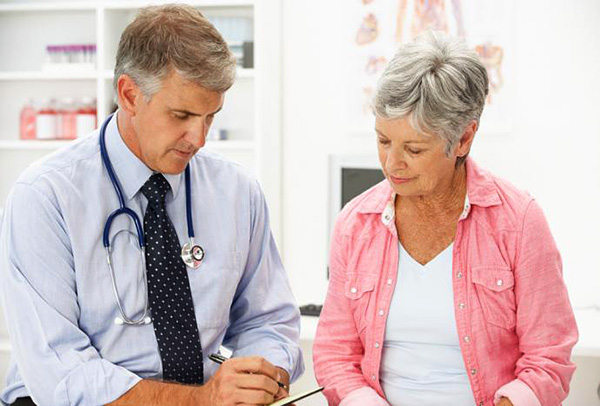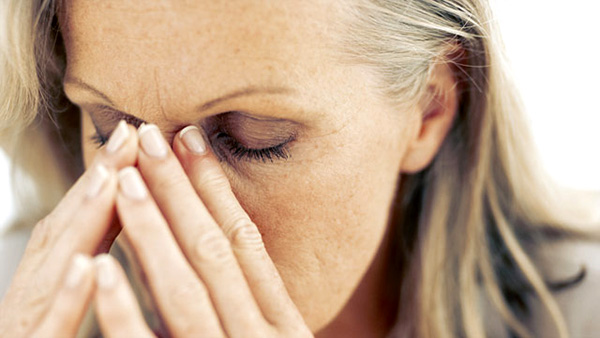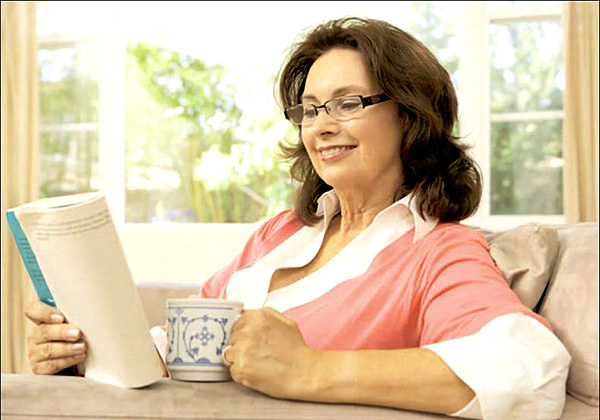Insomnia, depression, headaches, hot flashes and excessive sweating are some of the symptoms that make menopause one of the most difficult periods in a woman’s life. Generally, menopause happens around age 50, when estrogen and progesterone levels fall below a certain level considered normal, and fertile period ends.
Menopause represents the end of a woman’s reproductive period, is allowed one year after the last menses, around the age of 50 years, but every woman has their own pace and this age can be delayed by a few years, more or less. Before the actual menopause, there is a period of 5-8 years which is called perimenopause, whose main symptom is the heavy and irregular menstruation.
After several years of hormonal changes, estrogen and progesterone begin to decline. When estrogen drops below a certain level, menstrual cycle and follicular activity, respectively childbearing, take over. After a year without menstruating, woman reach menopause and pass to the postmenopausal period. After a year or two of postmenopausal, estrogen level is balanced at a low level. Because estrogen plays an important role in other functions of the body, lowering level effects of bone, mineral loss and thinning and drying of the skin, atrophy of the vagina and urinary tract – start to appear.
Menopause can be prematurely installed (artificial) by surgical removal of the ovaries (oophorectomy) or due to chemotherapy or radiotherapy in abdominal and pelvic area. Even if menopause is a physiological change of body that does not require treatment, symptoms can be hard for a woman to be taken, so a series of measures to improve conditions during this stage should be applied.
Menopausal symptoms:
– Hot flushes (sudden and transient warmth felt on face, neck, chest, accompanied by sweating and chills)
– Difficulty sleeping (insomnia)
– Emotional disturbances, mood changes or irritability
– Changes in sexual life, sexual interest or response
– Concentration or memory problems related to sleep disorders and hormonal changes
– Migraine (headache)
– Tachycardia (palpitations)
– Generalized pruritus (itching)
Signs announcing menopausal / postmenopausal periods:
– Absence of menstrual periods (women no longer need contraception)
– Drying and thinning of skin, appendages (hair and nails) due to decreased collagen production
– Vaginal and urinary changes as: vaginal dryness, irritation and itching
– Increased risk of urinary tract and vaginal infections
– Pain during intercourse (dyspareunia)
– Decreased bone density (osteopenia)
Measures for menopause to be easier to bear:
– A balanced diet, easy exercises, limiting smoking and even stop this vice, limiting caffeine and alcohol consumption;
– Elimination of stressful daily activities and sports, and practicing relaxation techniques: yoga, meditation, swimming, water aerobics, hiking and even painting outdoor, tapestry, crochet, etc;
– Hormonal therapy with low-dose or oral contraceptives (low-dose again) may be an option if you are still having periods and have multiple or severe symptoms;
– After the menopause, hormone therapy may be used as a short-term treatment for severe symptoms, in the lowest dose possible;
– Woman might need treatment prescribed by a gynecologist for some symptoms such as hot flashes or vaginal dryness;
– Meditative breathing exercises and herb supplements with black cohosh (Cimicifuga racemosa) or soy may help relieve menopausal symptoms;
– Lifenol or extract of hop cones, plays an important role in improving the quality of life in postmenopausal women. The extract from hop cones contribute to the normal functioning of the hormonal system by high intake of phytoestrogens, very necessary for maintaining a youthful tone and body;
– In the case of vaginal dryness, it is recommended creams containing estrogen, rings or tablets which can improve the dry, irritable or thinned mucous membrane. The vaginal absorption assimilate a smaller amount of the hormone estrogen and decrease the risks associated with estrogen therapy. Kegel exercises are a great help in this matter;
– After 30 years, the bone density decreases by 0.13% per year, as with menopause will decrease by 2% per year. Doctors say that it is absolutely necessary to take calcium with vitamin D3 because the lack of estrogen leads to loss of calcium from bones;
– Is necessary to have weight under control, eliminate foods such as refined sweets, fats and carbohydrates.
– During menopause, a gynecological test is recommended every six months, transvaginal ultrasound test once a year, breast ultrasound test once a year and a mammogram after the age of 50 years.
Beneficial plants:
– Agnus castus (Chaste Tree): This herb acts on the pituitary gland which controls hormonal secretions. It is used since ancient times to treat women’s issues;
– Evening primrose oil (Oenothera): not helping against hot flushes, symptoms that all women are afraid of, but it is helpful in treating other unpleasant symptoms of menopause, such as breast tenderness and mood changes;
– St. John’s Wort (Hypericum perforatum): is a natural antidepressant that acts against depressive feelings that may occur at menopause (women hardly bear the thought that are no longer fertile);
– Salvia: is effective against hot flashes and sweating, but also to improve memory;
– Thyme: is effective for dizziness;
– Red clover: reduce by 80% depression in women past menopause;
– Therapeutic mushrooms: Reishi, calming and relaxing the neurovegetative system (improves indisposition, insomnia, nervousness, cardiovascular problems), Maitake has a high content of vitamin D; Hericium helps to balance mood changes; Auricularia is effective for excessive sweating.


